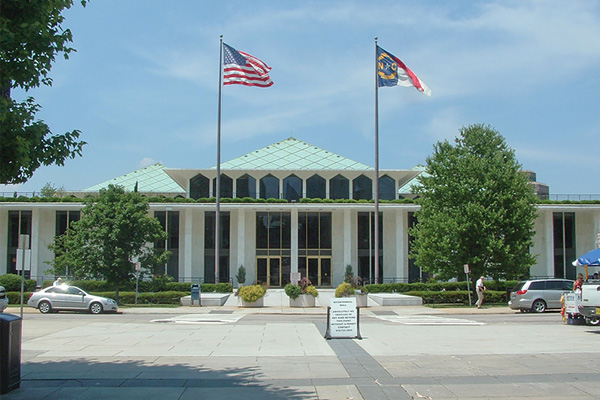The North Carolina General Assembly made it clear who is running the state and it isn’t Gov. Roy Cooper.
The state legislature overrode six of Cooper’s vetoes on Wednesday, Aug. 16. Those six bills have now become law despite the fact that Cooper vetoed them.
The North Carolina governor has three choices when a bill is passed by both houses of the legislature and sent to his desk. The governor can sign the bill into law. The governor can do nothing and the bill becomes law in 10 days without his or her signature. Or the governor can veto the bill, in which case it takes a vote of 60 percent of the House and 60 percent of the Senate to pass the bill over the governor’s veto.
Cooper is a Democrat and the Republicans have veto-proof majorities in both the state House and state Senate, which means that if all the Republican legislators vote for a bill they can override Cooper’s veto.
The six bills that are now law despite the opposition of Cooper are:
- The Parents Bill of Rights, which gives parents more rights in regard to the education of their children and is designed to ensure that age-appropriate material is being taught in the schools.
- The Fairness in Women’s Sports Act, which bans biological men from competing in women’s sports.
- Prohibit Gender Transition Procedures for Minors, which outlaws gender-reassignment surgery, puberty blockers and cross-sex hormones for children.
- The Charter School Omnibus Bill, which removes enrollment caps for some charter schools but does maintain enrollment caps for low-performing charter schools. It also allows counties to use property tax revenue to fund capital needs for charter schools.
- “An Act to Convert The Charter Schools Advisory Boar Into the Charter Schools Review Board, to Shift the Authority to Approve Charters from the State Board to the Review Board, and to Create a Right of Appeal to the State Board of Education from Review Board Decisions,” which, as the title indicates, gives the Charter Schools Review Board more power to control charter schools.
- Code Council Reorganization and Various Code Amendments, which creates a more balanced Residential Building Code Council and is designed to reduce construction costs for homebuilders.


Wonderful! Amazing what common sense can accomplish. Guess the woke folks and socialists are plotting for more muck ups in society.
Thank you State General Assembly!
Praise God for this leadership.
We could use some the same voters here Guilford County.
We have a one-party system here. See how it is working for us?
Our legislature is the main reason that NC is a go-to state. A conservative agenda. Sooner or later, many of those who move here from blue states will bring their politics with them. If anything is any good, everyone will jump in and ruin it.
Gotta get in between doctors and parents in knowing what is best for kids. Go get em repubs!!!!
If either doctors or parents think child mutilation is appropriate, they are insane, and shouldn’t be doctors or parents. And Chris, if you think it’s appropriate to mutilate a child’s body, you’re insane too.
I see you have read the propaganda of the right wing anti-social nerds. Surgical intervention is very rare with child who have expressed gender confusion. And what little there is is mostly female to male candidate having breast removal after age 16. And those are only after extensive phycological evaluation.
But I guess mommy, daddy and patient should have called you first.
chris…talk to the hand
you sound like a tween girl with that comment…oh right….you are a drama queen. LMAO
And you sound like a fey gay knee-jerk liberal, Chrissy Boy.
No different than teachers getting between parents and their children time to put this liberal woke crap out to pasture with the other bovine piles
I am relieved they had sense and courage. I only wish I could believe this will stand. I’m sure it won’t be long before all the people moving into this state will result in more liberals winning seats in the legislature and these laws changing. I hold out hope for a Republican governor (as a former Californian I think it’s a hoot that we can have a Governor and Lt. Governor of different parties, it’s a blast explaining that to people from logical states), but I doubt that it will happen. I see the change in Guilford County as a bad omen of things to come throughout the state. I promise I did not bring liberal Californians with me, I snuck out here quietly years ago because I wanted to live in a rural place where there were no fast food, traffic-clogged, crime-filled, cities within 100 miles. Little did I know. I apologize.
I have read the population of African-Americans in NC is some 24%. Many know better, but It’s only a matter of time. Guilford & Mecklinburg Counties are gone. RTP & Asheville to follow. There is nowhere to hide. At least not in the USA.
Western civilization will follow the decline of the U.S. Our children and grandchildren will live during bad times in history.